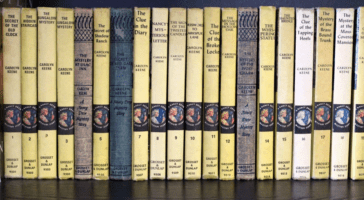To Repeat or Not to Repeat: How Much Regrounding in a Series?
These thoughts are aimed at those who are writing a series, as I have been. It’s begun to feel like I’m writing the same book over and over! Why? Because the characters and their sitz im leben need to be reintroduced each time, in case (a very likely case) someone picks up Book Three without having read Books One or Two. Just how much grounding in the continuum of the series is necessary for each episode? That depends on the … Read More »






